Tom's Hardware Verdict
If you need portable, secure storage that’s faster than an HDD or USB flash drive, the Kingston IronKey Vault Privacy 80 External SSD has you covered. However, it pales in comparison to any other portable SSD on the market and costs a pretty penny for what it brings to the table.
Pros
- +
Versatile security functions
- +
Attractive and portable
Cons
- -
Extremely expensive pricing
- -
Limited sequential performance
- -
Very poor all-around performance
Why you can trust Tom's Hardware
Kingston's IronKey Vault Privacy 80 External SSD is a portable SSD with an attractive full-featured touchscreen that controls many customizable options that keep your data safe. The drive comes with up to 1.92TB of QLC flash storage backed by hardware encryption, conveniently includes Type-A and Type-C cables, and like the drives on our list of best external SSDs, is compatible with most operating systems and devices. However, because this is a specialized device that's focused on data security, these advantages come at the cost of performance and a thick price tag.
The IronKey may be up your alley if you want secure storage in your pocket that’s faster than a hard drive or slower forms of flash storage, such as SD cards and USB flash drives. It’s certainly attractive, and the built-in touchscreen makes the drive’s security functions easy to use. However, such convenience comes at a price, as the drive will run you several hundred dollars at any capacity. Kingston also made some compromises in the performance department.
Most other portable SSDs don’t offer built-in security functions, aside from perhaps Samsung’s T7 Touch, and software-based solutions remain a viable option. Of course, the whole idea is to have reliable and portable storage, but performance can vary widely depending on the interface.
The IronKey relies on the slowest USB 3.2 Gen 1x1 connection, but just how far does it fall behind the competition? Encryption comes with a performance cost, but ultimately Kingston made design decisions that may have you reconsider the value of the added security.
Specifications
| Product | 480GB | 960GB | 1920GB |
|---|---|---|---|
| Pricing | $284.99 | $345.99 | $488.99 |
| Capacity (User / Raw) | 480GB / 512GB | 960GB / 1024GB | 1920GB / 2048GB |
| Form Factor | Portable | Portable | Portable |
| Interface / Protocol | USB-C / USB Gen3 1x1 | USB-C / USB Gen3 1x1 | USB-C / USB Gen3 1x1 |
| Included | USB Type-C to Type-C, Type-C to Type-A cables | USB Type-C to Type-C, Type-C to Type-A cables | USB Type-C to Type-C, Type-C to Type-A cables |
| Controller | SM2259XT | SM2259XT | SM2259XT |
| DRAM | No | No | No |
| Memory | Micron QLC | Micron QLC | Micron QLC |
| Sequential Read | 250 MBps | 250 MBps | 250 MBps |
| Sequential Write | 250 MBps | 250 MBps | 250 MBps |
| Random Read | N/A | N/A | N/A |
| Random Write | N/A | N/a | N/A |
| Security | 256-bit XTS-AES (FIPS 197), PIN (Touchscreen) | 256-bit XTS-AES (FIPS 197), PIN (Touchscreen) | 256-bit XTS-AES (FIPS 197), PIN (Touchscreen) |
| Power | Bus-powered | Bus-powered | Bus-powered |
| Endurance (TBW) | N/A | N/A | N/A |
| Dimensions | 122.5 x 84.2 x 18.5mm (LxWxH) | 122.5 x 84.2 x 18.5mm (LxWxH) | 122.5 x 84.2 x 18.5mm (LxWxH) |
| Weight | 284.9g | 284.9g | 289.5g |
| Part Number | IKVP80ES/480G | IKVP80ES/960G | IKVP80ES/1920G |
| Warranty | 3-Year | 3-Year | 3-Year |
The Kingston IronKey Vault Privacy 80 External SSD is available at 480GB, 960GB, and 1.92TB. These capacities suggest additional over-provisioning, reducing available user space to leave extra for the controller to improve write performance and flash endurance. This makes sense given the purpose and characteristics of the drive. The IronKey is a bit heftier than many portable SSDs, in part because it has an embedded touchscreen for its security functions. Kingston backs this unit with a three-year warranty, which is a bit anemic given the price.
Speaking of price, you'll pay significantly more for the security options, like the FIPS 197-compliant 256-bit XTS-AES encryption. This encryption meets the Common Criteria EAL5+ standard (Evaluation Assurance Level 5 with one or more additions to the base rating). The randomizable, color touchscreen has a multi-password option with PIN or passphrase, from 6-64 alphanumeric characters, with a configurable amount of access attempts and an auto-timeout. The drive also supports a dual read-only mode for write protection to protect against compromised systems and malware, plus the ability to Secure Erase the drive by wiping the encryption key.
You might be dismayed to see the performance limitations — the drive offers up to
250 MBps for sequential reads and writes. This makes sense for a variety of reasons. One is that on-the-fly hardware encryption does have some overhead and performance limitations, even with the dedicated encryption microcontroller. Because performance is already limited, Kingston can save cost when selecting the SATA-to-USB bridge chip, which in this case has a hard limit of 3Gbps SATA. We’ll look at these respective components a bit below. Due to these limitations, the USB interface is USB 3.2 Gen 1, or 5Gbps.
Given all these considerations, the price-per-GB is best at 1.92TB and worst at 480GB. Based on this ratio, we would recommend the 960GB and 1.92TB SKUs.
Software and Accessories
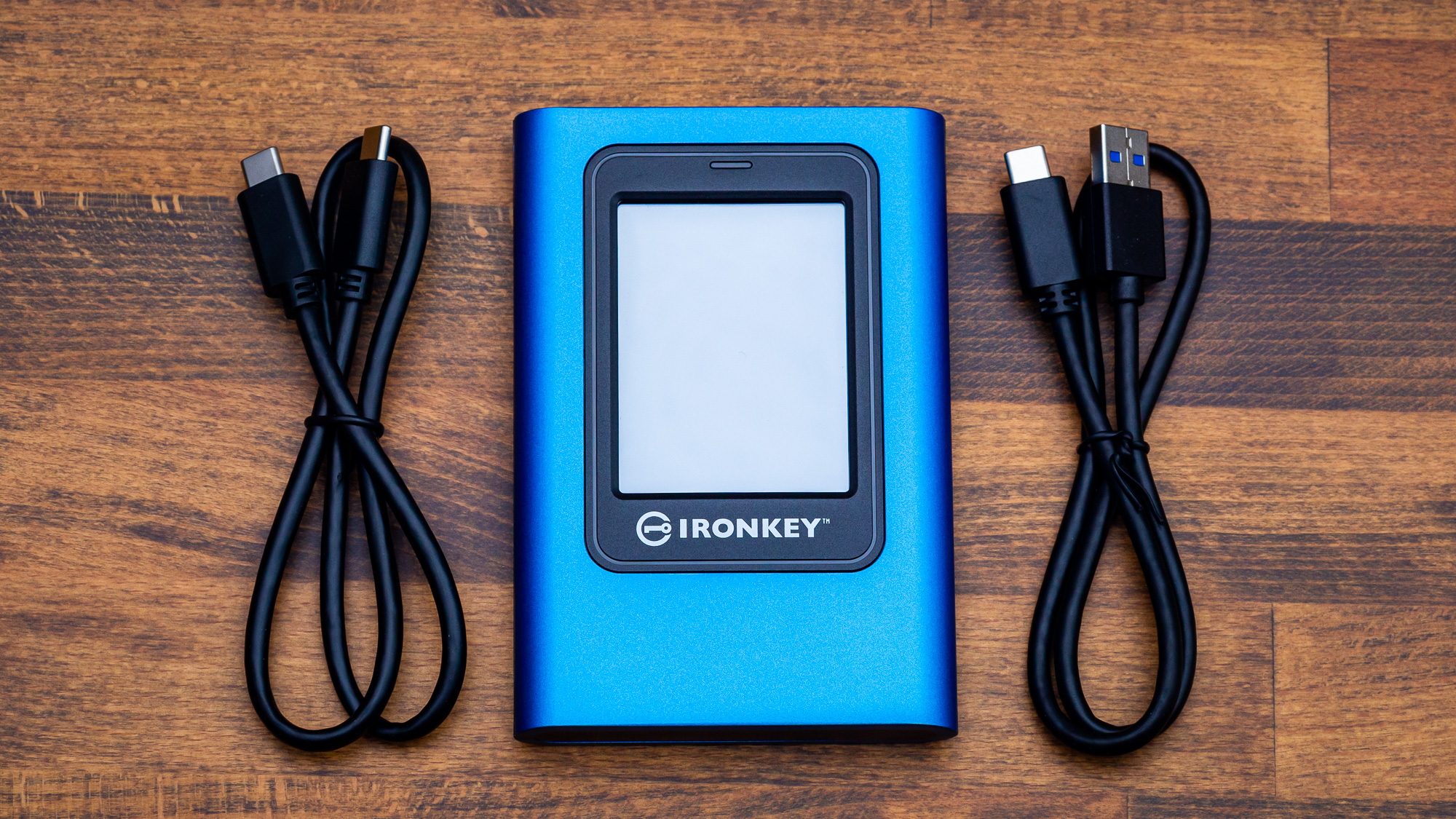
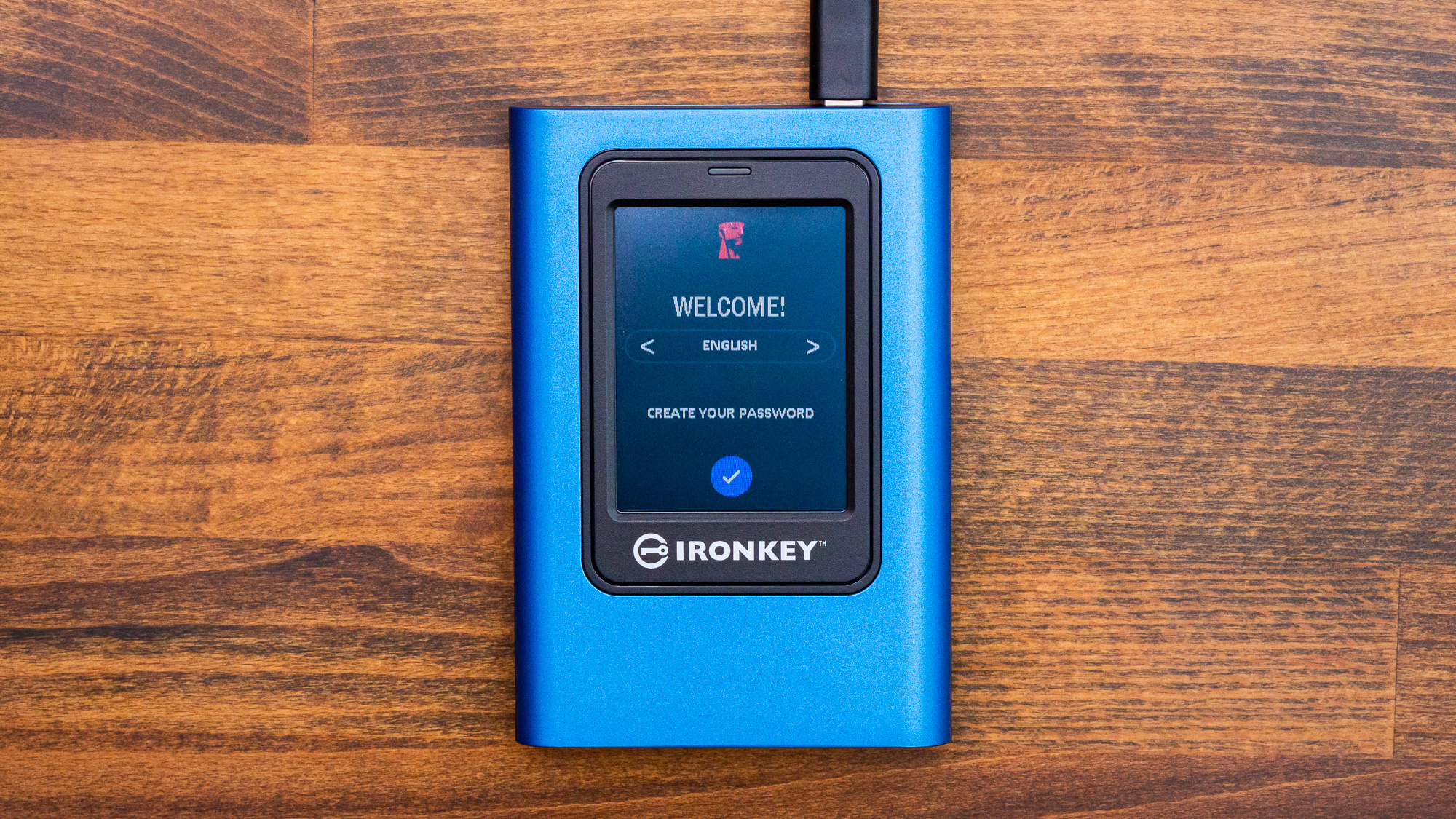
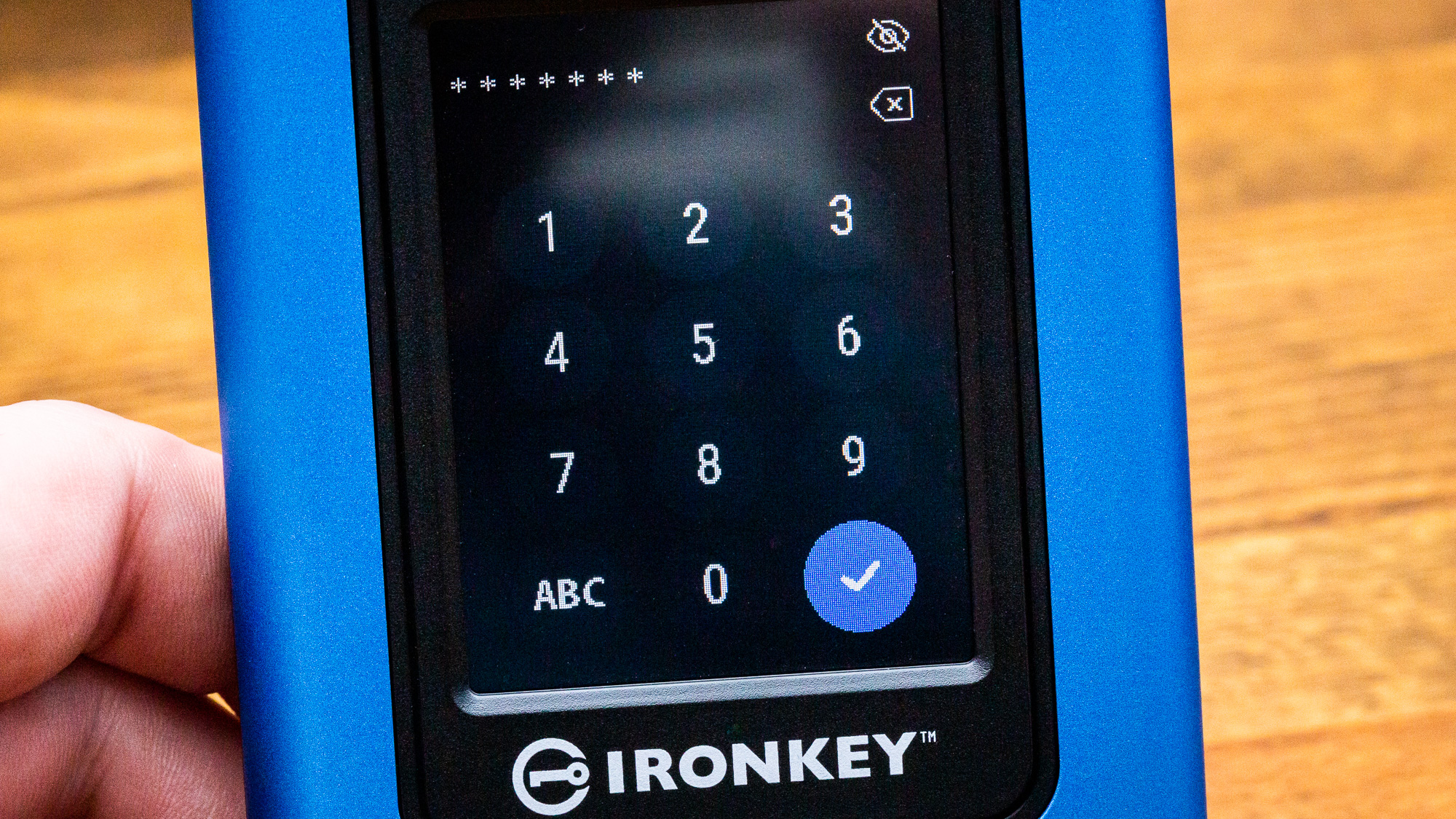
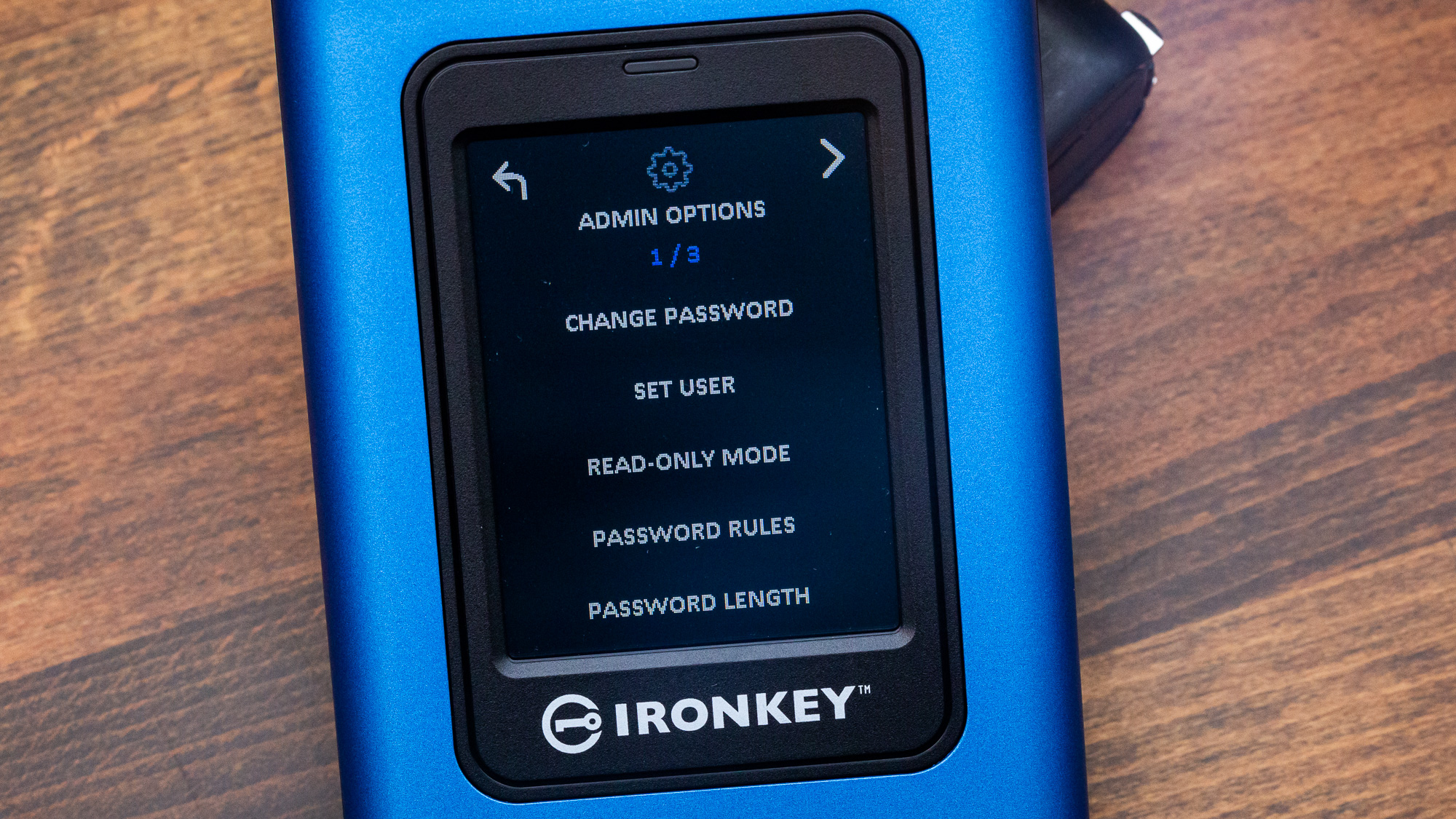
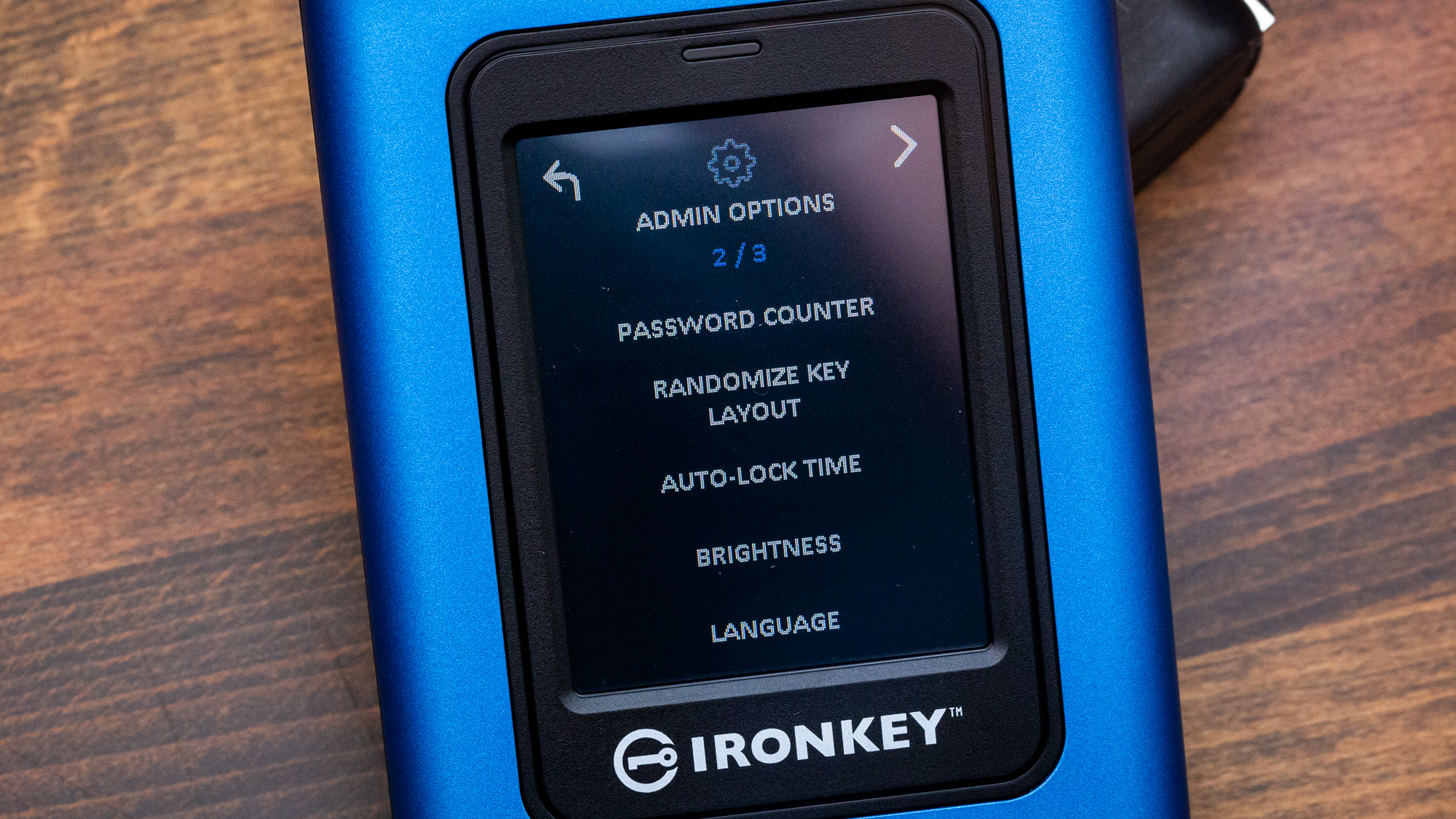
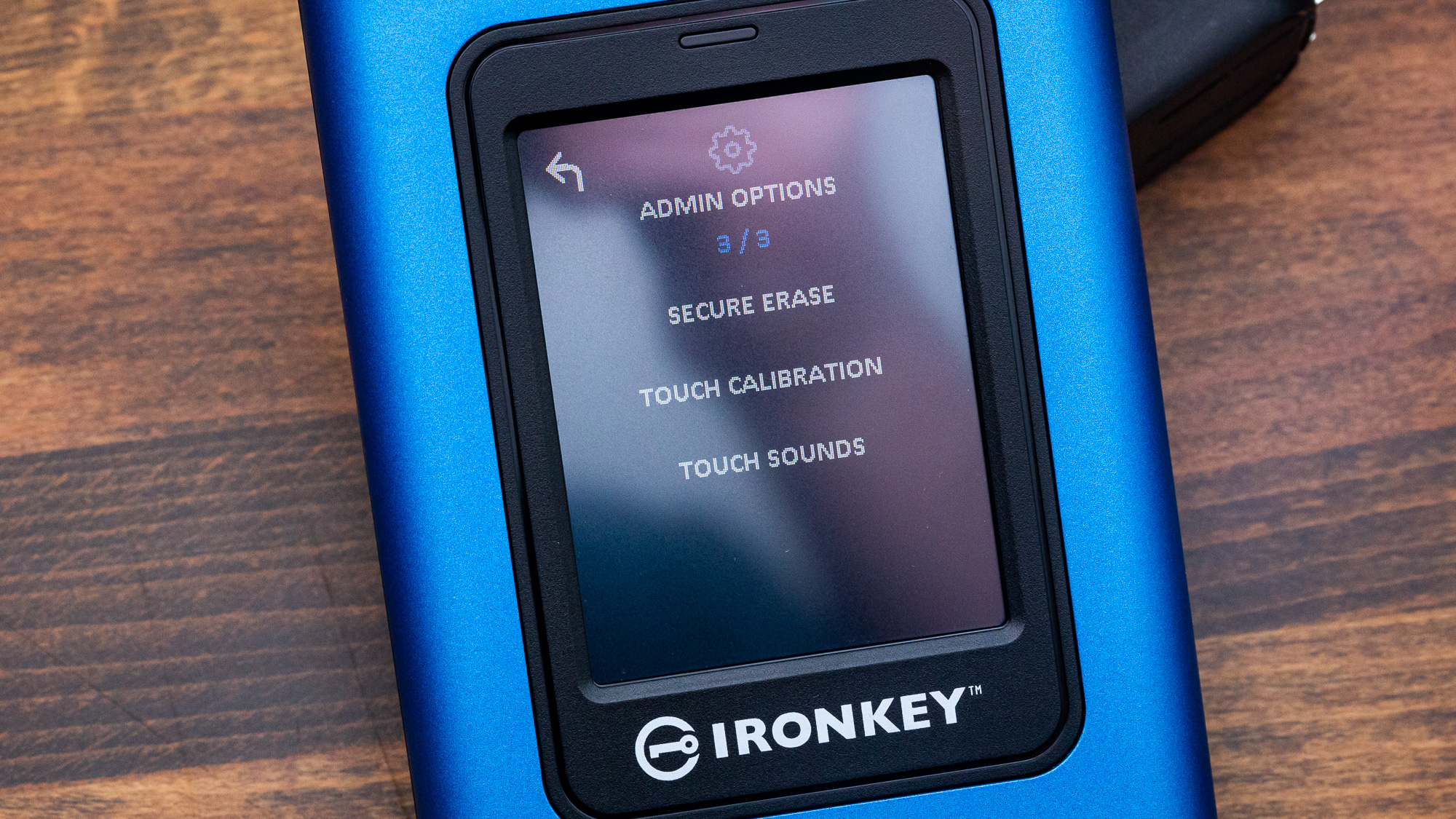
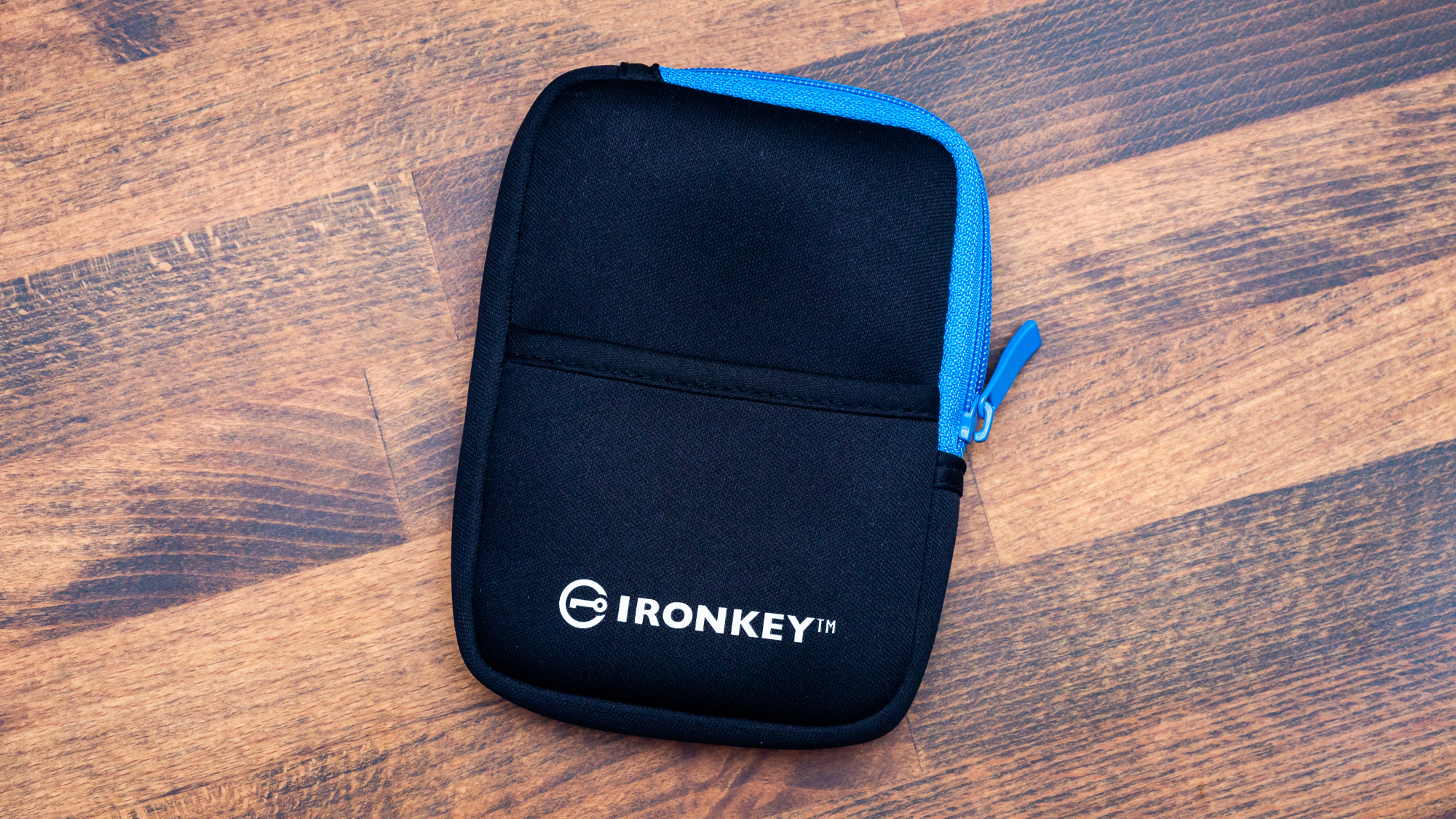
The IronKey comes with both Type-C to Type-C and Type-C to Type-A USB cables. The drive comes with a nice carrying pouch made of neoprene, which does offer some protection. The drive has built-in software, accessible through the touchscreen, for its various functions and settings. Unfortunately, while Kingston does offer downloadable SSD Manager software on its website, it doesn't support USB enclosures/devices.
A Closer Look
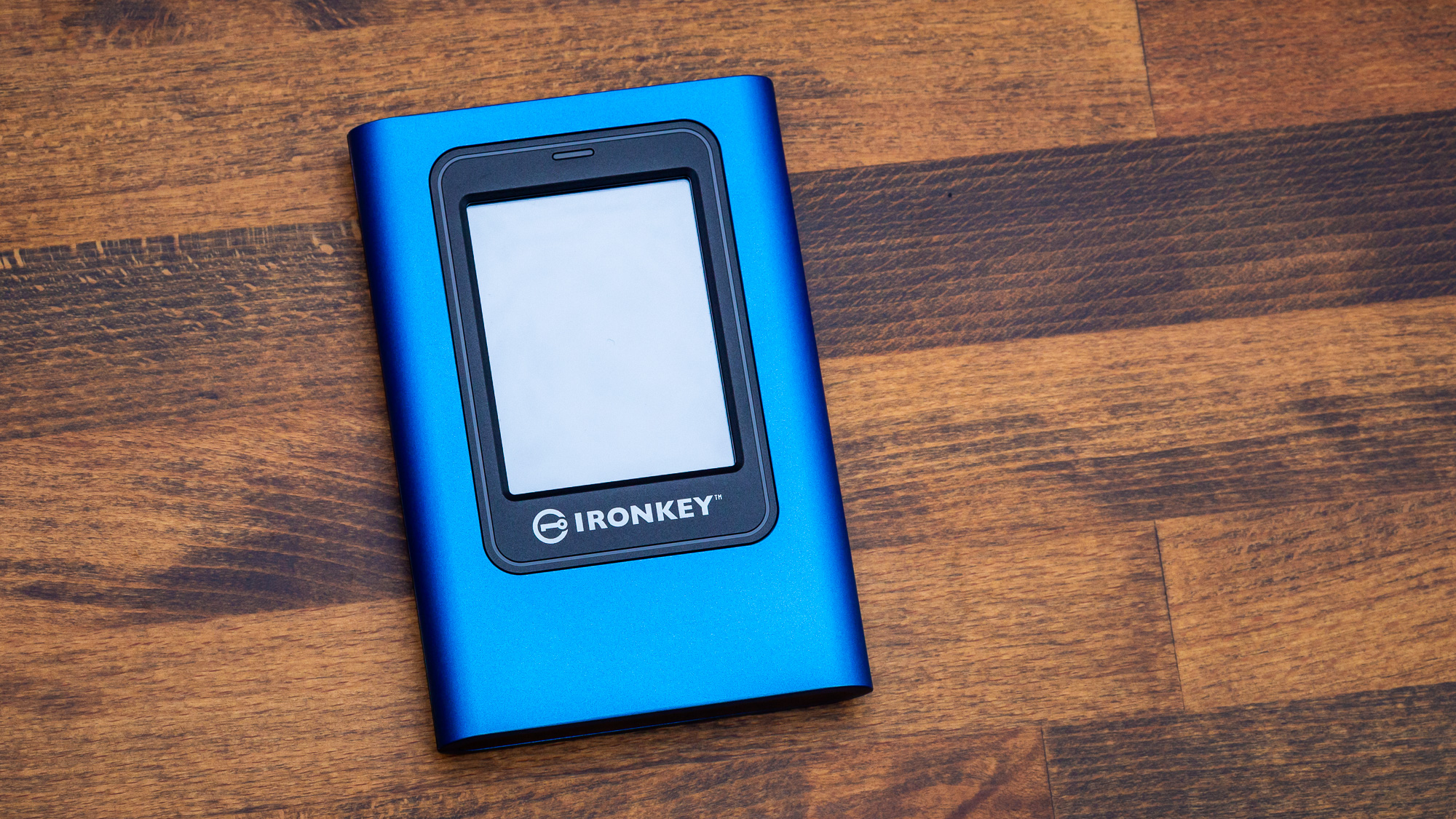
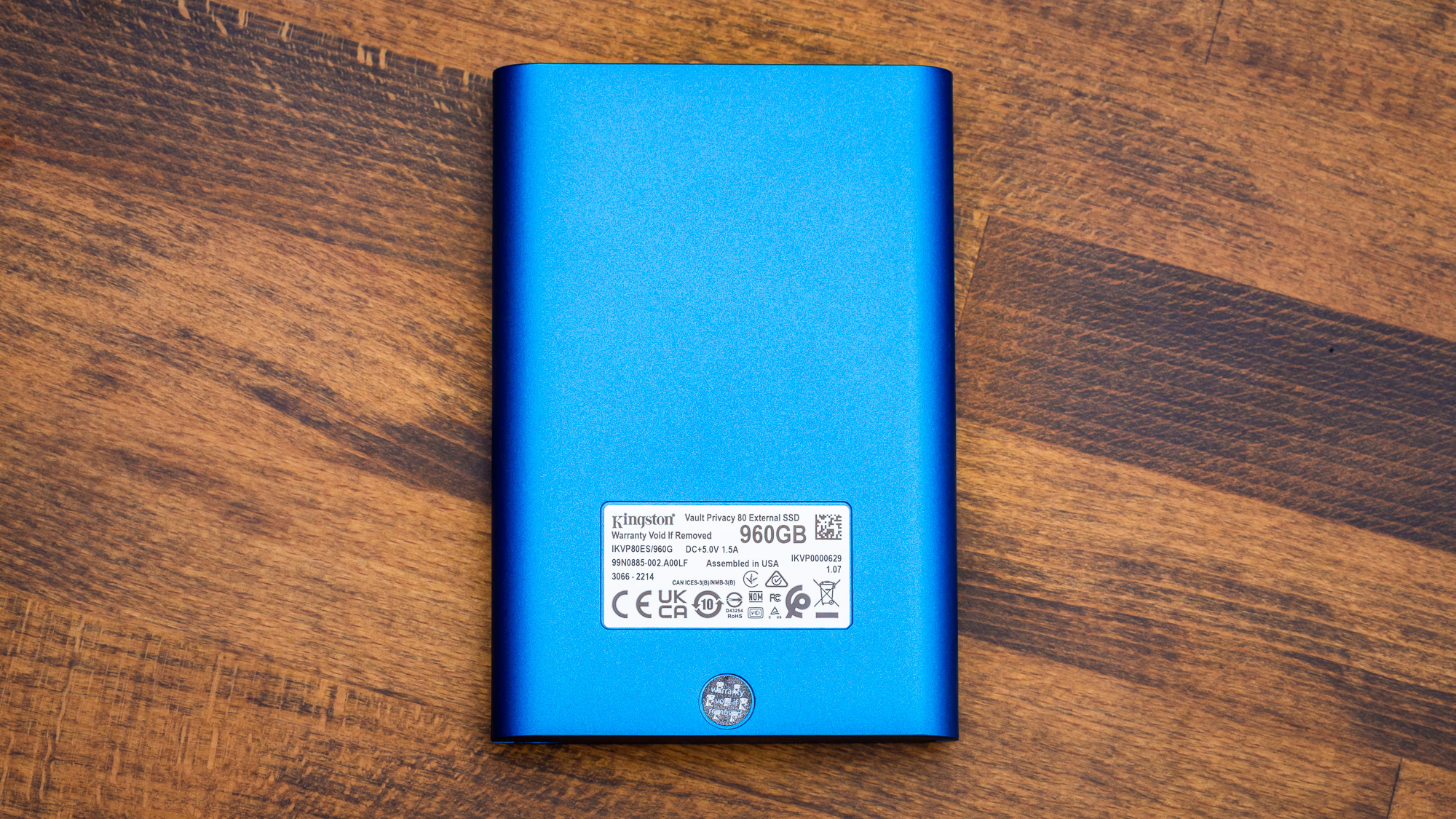
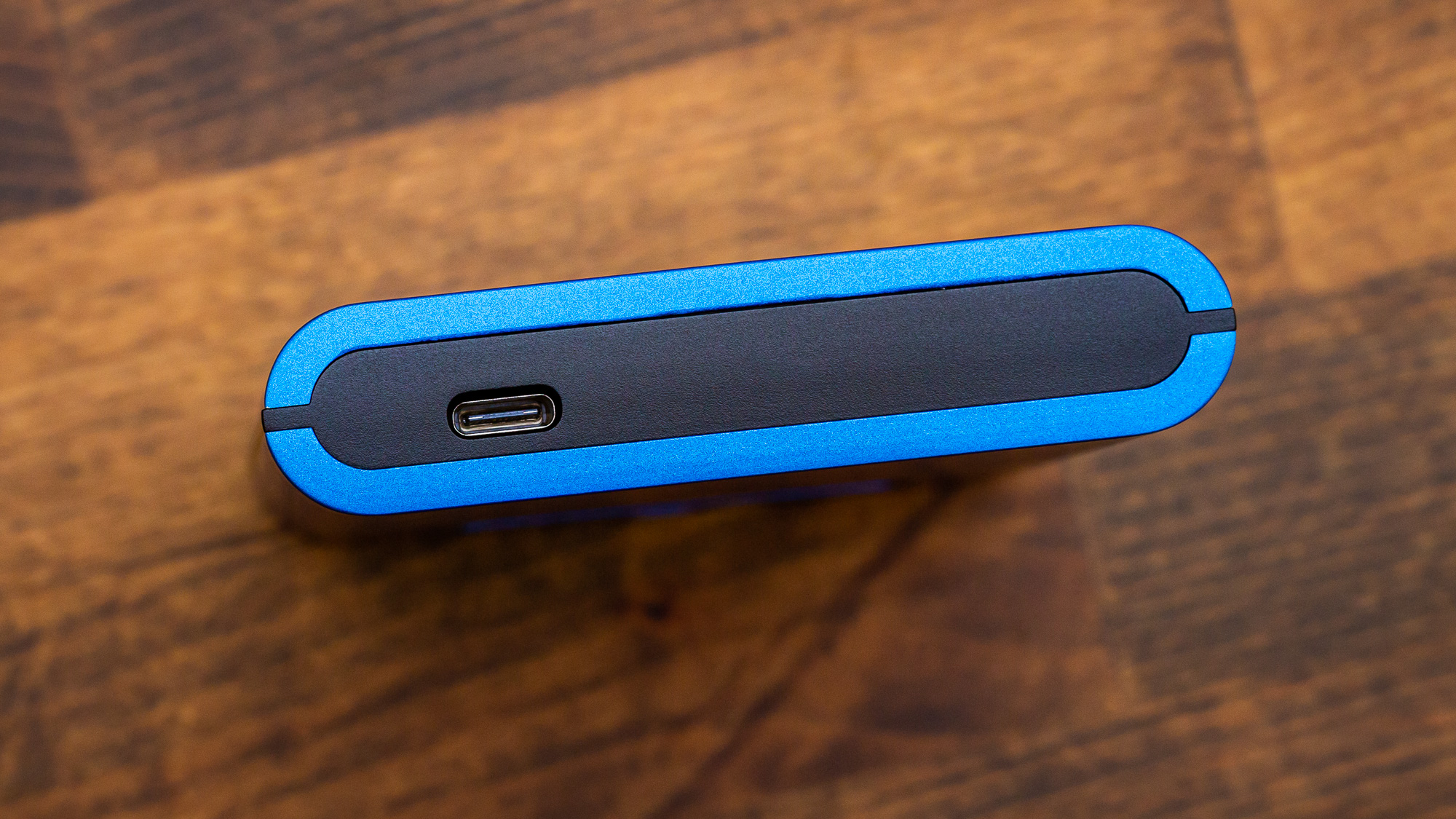
The front of the IronKey has a nice color touchscreen. The blue case color is attractive. The USB-C port resides on the bottom, which is convenient. On the backside, a label lists pertinent specifications about the drive: model, capacity, power draw, etc. There’s also a screw that allows for opening of the enclosure, covered by a “warranty void if removed” sticker.
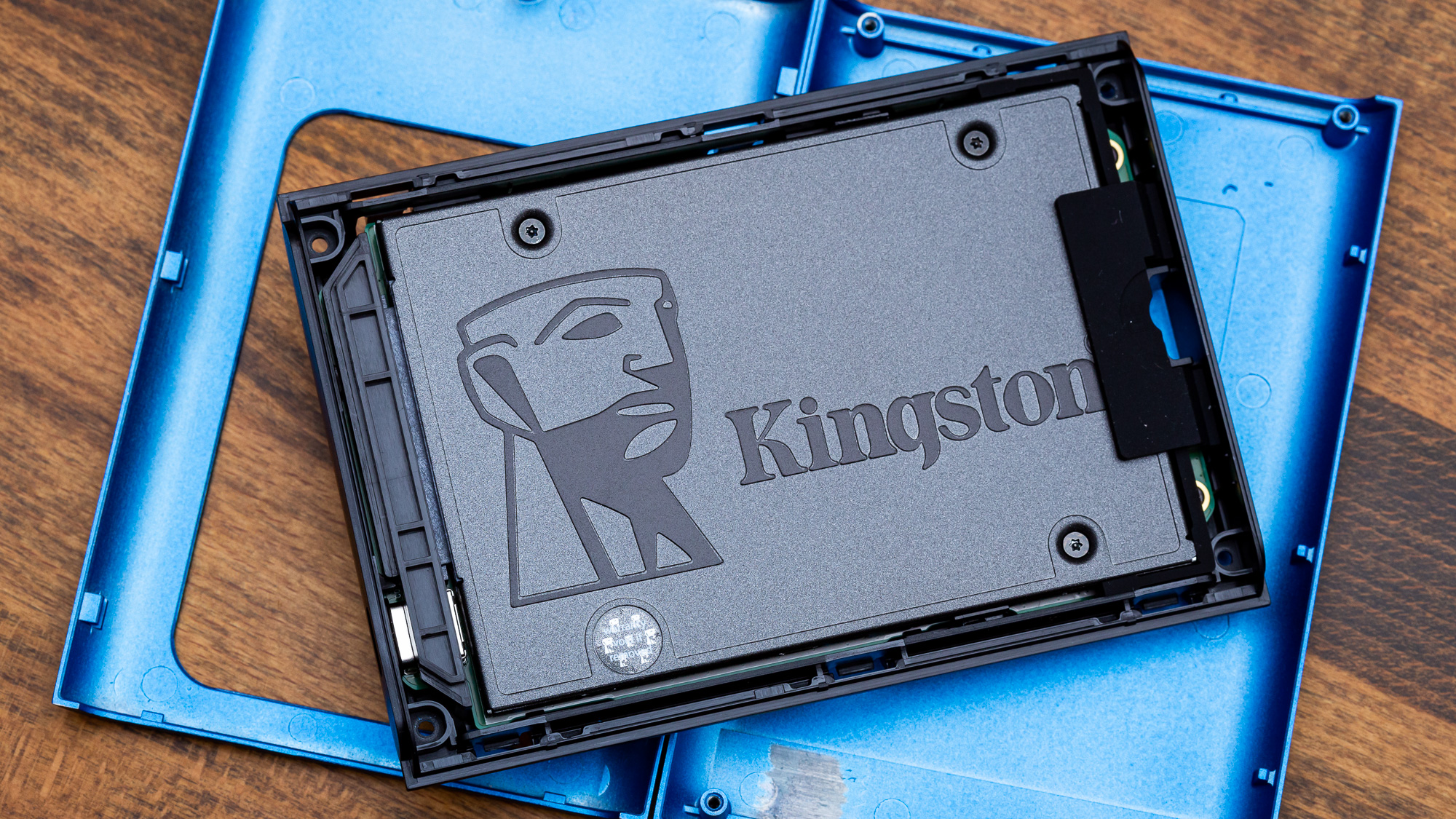
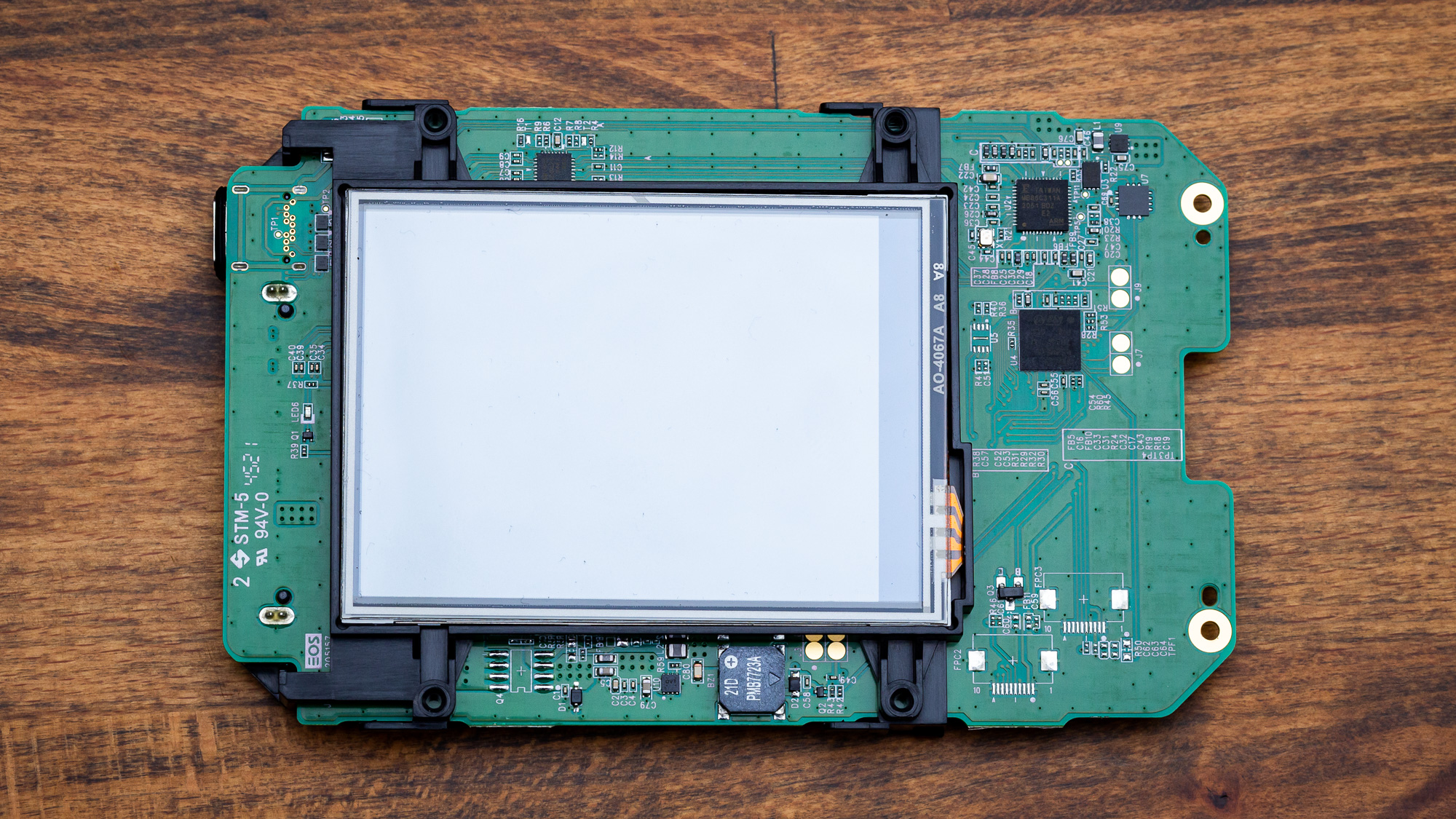
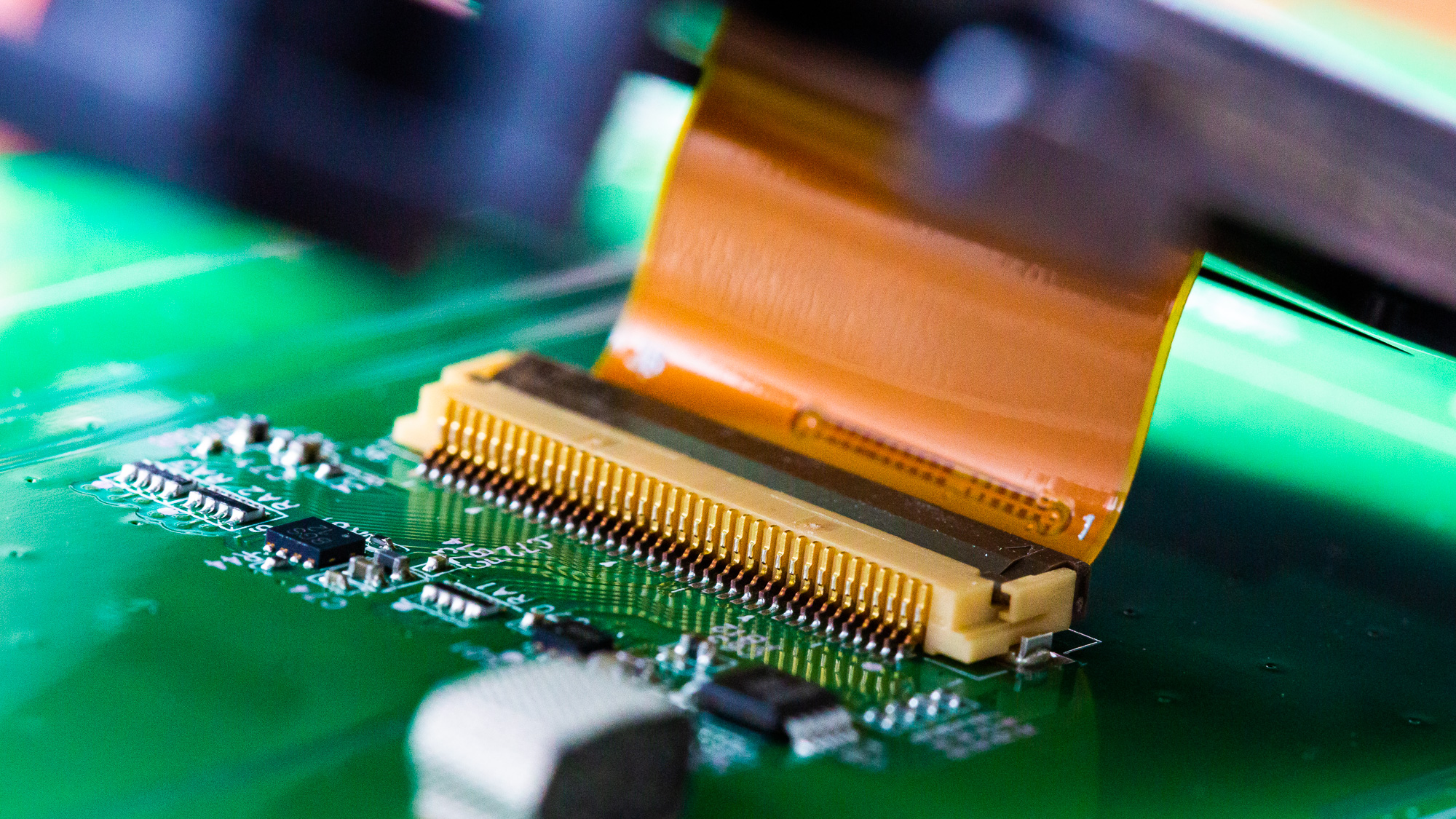
Inside we have what appears to be a Kingston A400 SATA SSD attached to a SATA-to-USB adapter, with a USB-C output and PCB beneath the drive. There are four screws to hold the bay in place and another four for the drive cover — including another warranty warning sticker. The touchscreen has a ribbon connecting the screen to the board, and we can see a few prominent integrated circuits (IC) on the PCB.
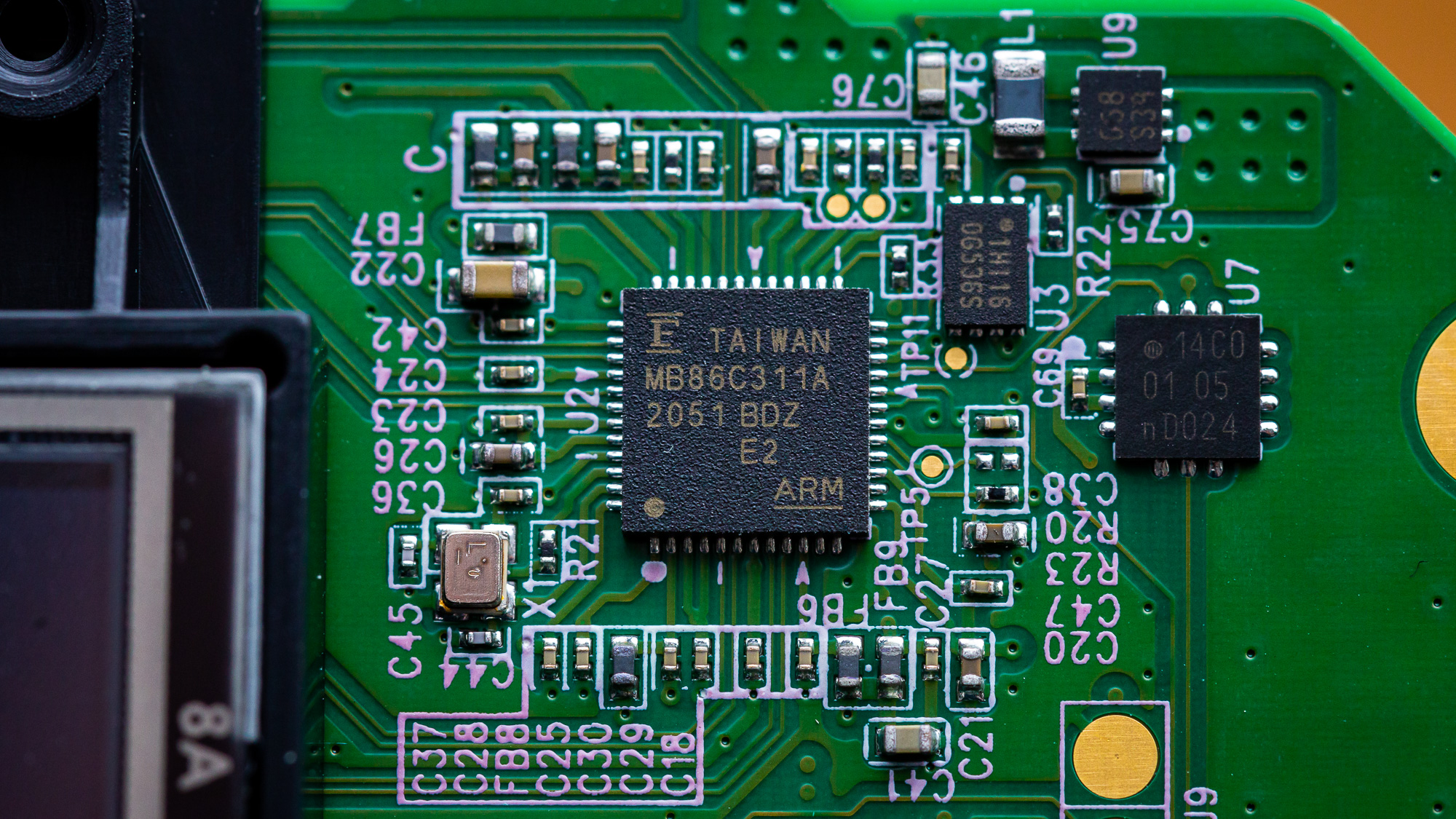
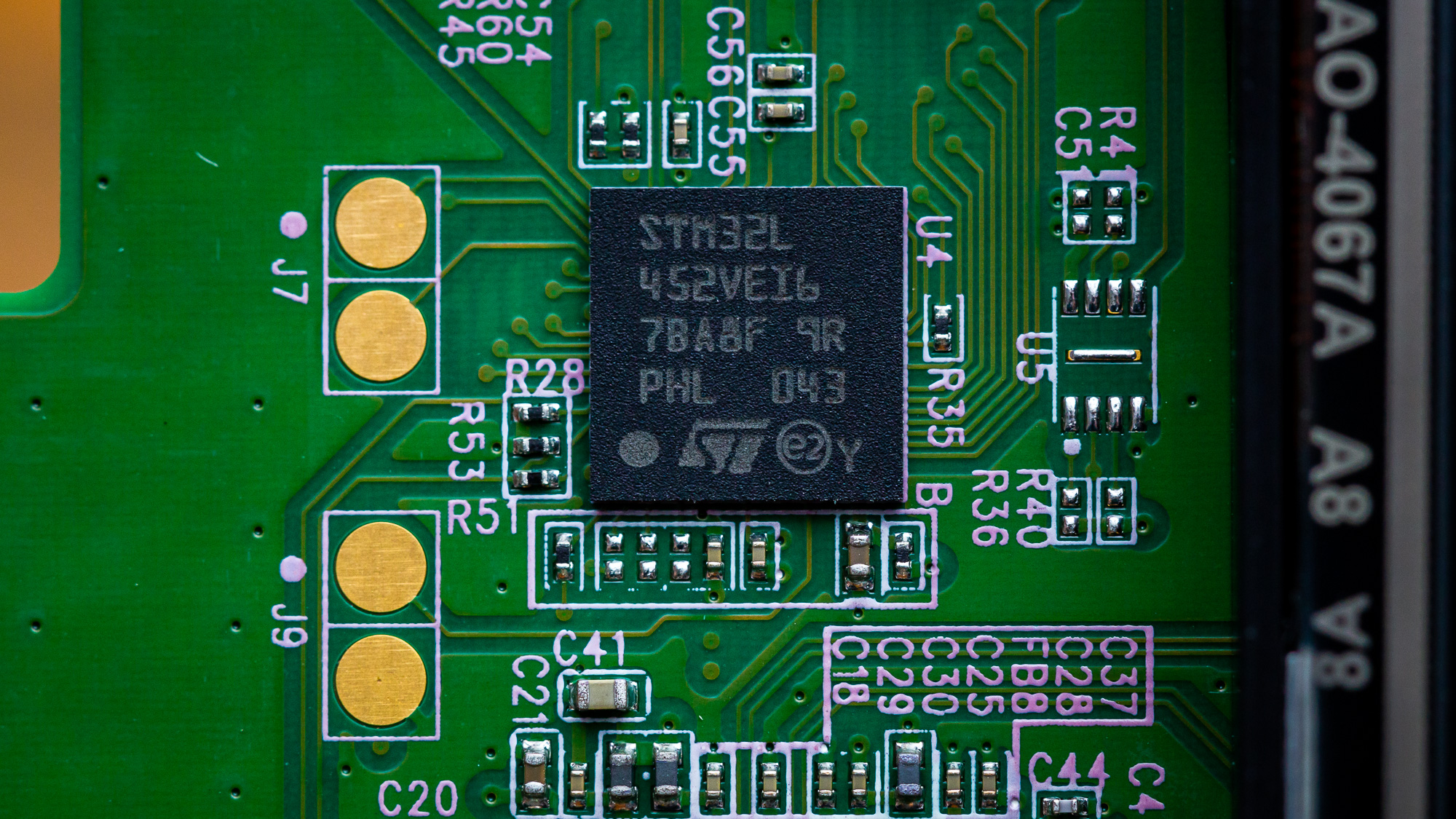
The first chip is labeled MB86C311A, which is a Fujitsu MB86C31 USB 3.0-SATA Bridge IC. This bridge chip is USB 3.2 Gen 1, or 5Gbps, on one side and SATA 2.0, or 3Gbps, on the other. Actual throughput on the SATA side is significantly lower than 3Gbps due to encoding and transfer overhead, with an approximate maximum of 270MBps. This chip does support the USB-attached SCSI Protocol (UASP) for better performance and other functions. The chip is based on an ARM Cortex-M processor, specifically the M3, a processor that's also used for offloaded functions in Crucial’s custom SSD controllers, like the Crucial P5 and P5 Plus SSDs. The -1A model of this chip has integrated AES encryption hardware.
The other IC is an STM32L, or STMicroelectronics STM32 microcontroller. The STM32 is based on Arm’s Cortex-M series of processors, designed to be low-cost and low-power for various applications. In this case, it’s likely used to manage the integrated touchscreen.
Self-Encrypting Drives (SED) have an encryption module as part of the controller ASIC while the IronKey has a separate chip for AES - a chip that also acts as a SATA-USB bridge. Unfortunately, this chip introduces a performance bottleneck in the drive.
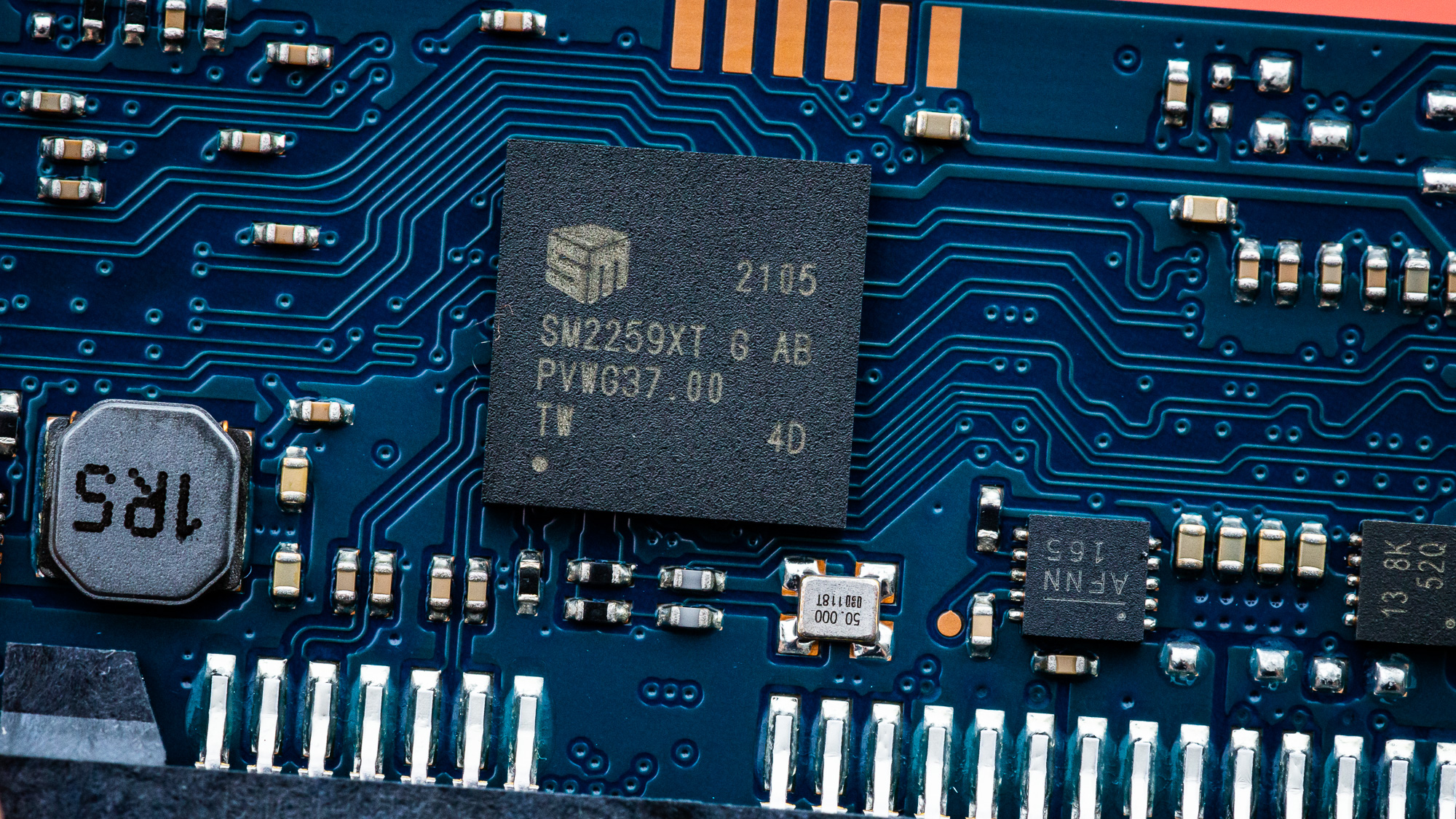
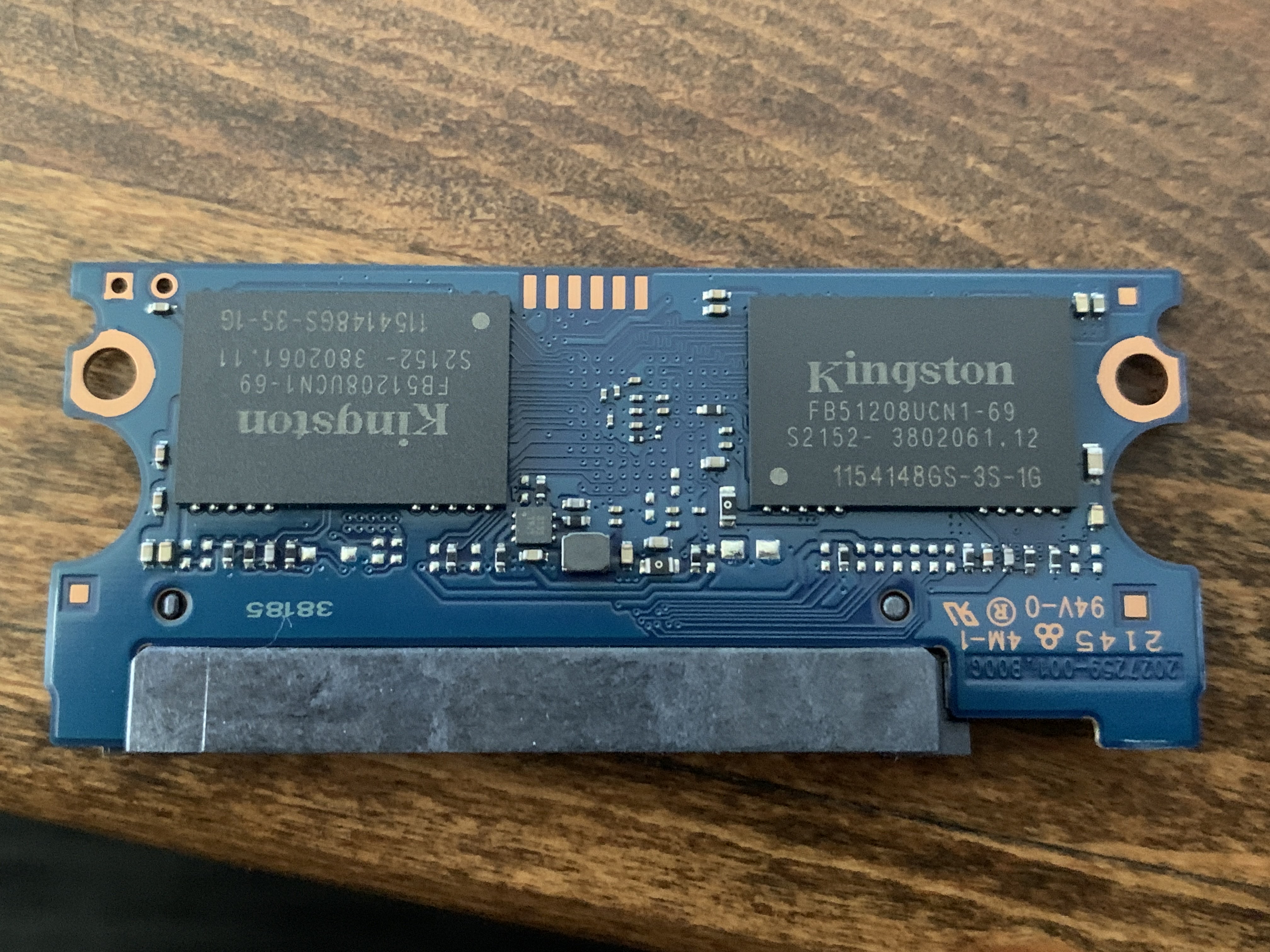
The flash is labeled FB51208UCN1, indicating these are 8-bit, 512GB NAND modules (two for a total of 1TB). We recognize this designation as similar to the flash used in Kingston’s NV1, which used 64-layer Intel/Micron QLC. We suspect that Kingston uses QLC here as well, which is not egregious as the drive is bandwidth-limited from the get-go. Verifying this flash with a utility is possible, but looking at the sustained write response can also be informative. This and other drives may utilize the 96-layer variety depending on supply.
The DRAM-less Silicon Motion SM2259XT SATA controller manages the flash. This SSD controller is found in many popular drives, like Crucial’s BX500, as an update to the original SM2258XT. The primary difference is improved LDPC error correction, which improves performance and endurance. This first showed up when Crucial added QLC SKUs to its BX500 lineup as it’s a good pairing to get more out of 4-bit flash.
This four-channel controller is best with at least two dies per channel, so we recommend the 960GB or 1.92TB SKUs. This is especially true given the pricing we covered earlier.
MORE: Best External SSDs and Hard Drives
MORE: How We Test HDDs And SSDs
MORE: All SSD Content

Shane Downing is a Freelance Reviewer for Tom’s Hardware US, covering consumer storage hardware.
-
KE=MV2 I own and use an IronKey which I bought long before the company was sold to Kingston. It uses SLC, has a metal epoxy filled enclosure so there can be no direct chip access and makes it very durable from shocks, a built in password manager, and it (had) the ability to back up your passwords to a cloud "vault".Reply
The people who buy these devices need to handle highly sensitive information, and manage a large number of credentials. I have 200+ I manage with mine. The transfer speeds and IO tests are completely irrelevant for this application. This should be a security focused review. The cost is what one would expect for hardened device. Unfortunately, the IronKey has gone downhill after the sale, which is why I haven't bought another. The Identity Manager function which you could use for password management has been removed, likewise the backup. As shown in the review, there is direct access to the internals.
Hopefully someone from Kingston will read this, and think about the actual purpose of the product. I would like to see an Identity Manager function added back in. I would like to have them partner with a true zero-knowledge provider (hint, hint, SpiderOak) so you can (truly) securely back up Identity Manager to a cloud in case the device is lost or damaged. That doesn't need to be "free", it can require a SpiderOak account. Until then, this product no longer offers what I need.